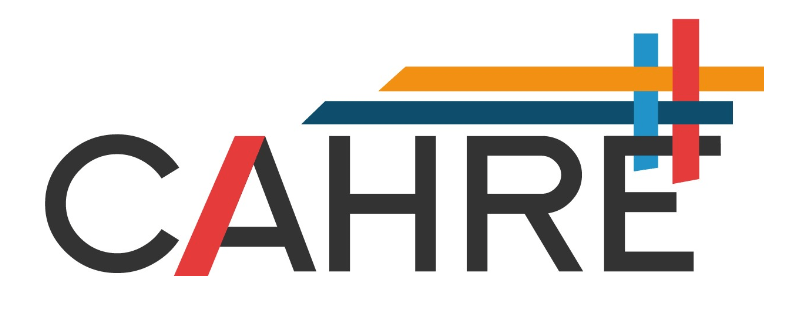Emerging Researchers
Blog Series 2022
Showcasing the work and experiences of emerging talent in the CAHRE Network.
From the Co-Directors
The Emerging Researcher Blog Series 2022 has been a year-long initiative from our young and early stage A/EM researchers.
Ten blog posts from ten incredibly talented young people. They are at different stages of an academic career – some are currently doing their Masters, some are embarking on a PhD, some are in the midst of their doctoral work, several have worked in research projects – and getting a taste of the invigorating and revelatory as well as uncertain and sometimes, disheartening, world of academic research.
Embracing the ‘Asian-ness’ of being Fiji Indian.
Our last blog post for 2022 is written by Nikki Singh. This is poignant piece that captures the complexity in identifying who you identify as and the internal work that is required to figure this out. Ethnic identifiers are often complicated by historical, political and cultural struggles that makes the question, “What ethnic group(s) do you identify with?”, just not that simple to answer. I hope emerging and established researchers who have visible identities are encouraged by Nikki’s piece, to actively explore and express their ethnic identities.
The unfair death burden of South Asian babies
For her doctoral research, Esti is looking into the important issue of stillbirth and neonatal deaths, an issue that disproportionately affects South Asian communities. Esti shares some of her thoughts on this research for which there is still so many questions left unanswered.
Three-eyed seeing: Opportunities for innovation in ethnic migrant research
So often research students are asked to adopt a theory or methodology for their research. The selection of theories and methodologies that are commonplace in health research commonly developed by those that do not share in our lived experiences or worldview. Rachel’s experience demonstrates how we can find harmony and be innovative by bringing together ways of thinking and doing from our culture and the context we live and research in. A bit like something old, something new, something borrowed, and something YOU.
Overthinking In A White Man’s World
In this month’s post, Tony Sriamporn, writes about the feeling of being ‘not quite this enough, but also not quite that enough’ that many, if not all, from migrant families can relate to. While he touches on heavy topics of racism and discrimination, the tone is light and comedic, making for an insightful yet enjoyable read.
The burden of representation is not on you
As A/EM students and researchers, we are often conscious of our difference or uniqueness within academia. Even more so, when our identities sit at an an intersection between ethnicity and other marginalised identities. We may find ourselves called up to speak for our communities, regardless of whether we feel that it is our place to, or feel burdened by the thought that how we present ourselves as individuals being a representation of our culture at large. In this month’s blog, Marlowe Toledo, encourages us to reframe this thinking and start to consider this ‘burden’ from a more critical perspective.
What does ‘decoloniality’ mean for us?
CAHRE is situated within the School of Population Health, a School that is characterised by its inter- and transdisciplinary approach to health research. Many of our postgraduate students draw on a range of theories that reach beyond a ‘standard’ health repertoire. In keeping with this, Erica, an emerging academic from the Department of Sociology has crossed the disciplinary boundary to author this post. Erica shares her thoughts on decoloniality in praxis, challenging us to consider taking a critical and, at the same time, liberating approach to our research. For those exploring decoloniality or decolonising methodologies, this blog and authors mentioned will make for fruitful reading.
“Am I doing enough?” Reflections on advocating from the Ivory Tower
Often research students are often asked by their supervisors “so what?” What is the impact of their research and how might it apply to the real world? In this month’s blog, Lovely shares about how she is grappling with the challenges of translating the labour of her research and her position in within a University into something meaningful for Asian youth.
Thoughts on Ethnicity Coding
Ethnicity coding is part and parcel of quantitative health research in Aotearoa New Zelaand. When working with ethnicity data it is not uncommon to defer to the standard Level One Ethnicity Codes of European, Māori, Pacific Peoples, Asian and MELAA. However, these conglomerations fail to capture the diversity of culture, characteristics and need. Alina shares her thoughts on ethnicity coding, and how this is influenced by her experiences and relationships.
Daughter of Sri Lankan Immigrant Parents
In this month’s blog, Kelsey shares with us her perspective of being the child of Sri Lankan immigrant parents. Difficulty or reluctance to express emotions is an experience that many Asian communities share, a feature of her experience that led Kelsey to mental health related research for her Masters in Public Health. Kelsey’s blog is candid and shares what is often unsaid by Asian students.
Working with: Reflections on Te Tiriti, Māori and being an AEM researcher
Welcome to the first post of the CAHRE 2022 Blog series that will be showcasing the emerging talent we have within the CAHRE network. I hope will find their work interesting and their thoughts and experiences intriguing. Our February post is written by Annie Chiang, Internal Committee Member for CAHRE. She shares some of her reflections on her experience of being an AEM PhD student working on project that has potential implications for Māori.
